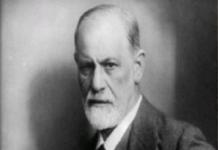First of all, they are characterized by structural and operational parameters. At the same time, the group of performance indicators largely depends on the fuel used. Liquid, gas and solid fuels have their own special qualities, which manifest themselves during the maintenance of the unit. To make the most of different combustible materials, many homeowners are switching to combination or universal boilers, which are multi-functional. With the help of such equipment, you can use the most suitable type of fuel, focusing on the season or heating requirements.
Features of combination boilers
The main feature and advantage of units of this type is that the user can, if there is a shortage of one type of fuel, use another - more affordable one. They are also financially beneficial. For example, electric models are considered the most expensive to operate, while gas mixtures, on the contrary, require the least cost. It is important to consider that universal boilers can support the use of a partial range of fuel types. Thus, there are models that operate only from solid fuel combustible materials or electricity, or modifications that are heated by diesel fuel and gas - your choice. But multi-fuel devices are also common. In both cases, the boilers support one main type of fuel through an installed main burner, and in addition, the user can purchase special integrated units for working with alternative fuels.
Reviews of the Atmos model

Atmos demonstrates with its units from the DC 32SP and DC EP series the central direction of technological development in the segment, which has given a new impetus to the development of alternative heating designs. This equipment operates on the principle of generator gasification, which is complemented by the function of a biofuel burner. The peculiarity of this direction is due to the use of pellets - a relatively new type of fuel that provides a high level of energy efficiency. In addition, Atmos universal boilers can operate on natural gas and fuel oil. Unlike most combination models, such units also eliminate the need for different burners. The versatility of the function is ensured by the presence in the device of several chambers designed for different groups of fuel filler.
Reviews of the Baxi model

The Spanish manufacturer's Roca line includes the P-30 model, implemented with an emphasis on a different concept. The developers used lightweight gray cast iron, thanks to which high thermal insulation was achieved. There are several modifications of this unit, which differ in power - from 23 to 52 kW. The choice in favor of one version or another should be made based on the place where you plan to use this universal boiler. At home, it is quite possible to operate even an average installation in terms of performance characteristics as the main source of heating. In a small apartment, the initial modification of the P-30 is more suitable. Boilers are supplied mainly with solid fuel, but as an alternative, you can also use liquid fuel - diesel or diesel fuel.
Reviews of the Jaspi Tupla model

This model can be considered not only as a universal boiler in terms of the use of different types of fuel, but also as a multifunctional installation in terms of the tasks it solves. In addition to the main heating function, this equipment solves the issue of hot water supply. Other combined models are famous for the same qualities, but in this modification the operating modes are maximally optimized for domestic needs. Firstly, this universal heating boiler is equipped with a wide range of safety systems, since working with gas requires a high level of reliability. Secondly, the ergonomics of operating mode control evokes positive feedback not only in terms of electronics, but also in terms of structural elements.
Reviews of Buderus models
The Buderus company is well known to specialists dealing with utility equipment. In this case, it is worth considering the non-standard solution Logano S121-2. The versatility of the model can be called conditional, since the unit is still mainly focused on working with solid fuel and, above all, firewood. But the boiler has two significant features. First of all, this is the ability to interface with other heating equipment that can operate on any fuel raw material. The second remarkable aspect is related to the fact that universal solid fuel boilers from the Logano series operate on the pyrolysis principle. In other words, it is planned to recycle the combustion products themselves, which reduces the volume of harmful emissions and increases the heat transfer of equipment.

Positive reviews about universal boilers
As experienced users of such boilers note, they are practically no worse than similar monofuel units in terms of energy efficiency, but at the same time retain the ability to use the optimal fuel for specific conditions. Obviously, the absence of restrictions on the choice of one or another combustible material also ensures a reduction in operating costs. In addition, universal heating boilers, simply due to the complexity of their design, must be equipped with additional safety systems. Accordingly, the practice of use demonstrates a high degree of reliability of models of this type.
Negative reviews
If during operation the user has the opportunity to plan financial costs for the purchase of fuel with high savings, then the purchase of such a boiler itself will in any case cost 20-30% more. Again, technological and design complexity inevitably contributes to an increase in the price tag. The second serious drawback noted by users is related to maintenance and basic maintenance. Unlike monofuel units, universal boilers require a wider range of preventive measures that their operator must carry out. This also applies to cleaning chambers with burners, and checking operating components, as well as testing circuits that operate under different loads depending on the fuel used.
Conclusion

The trend of transition from traditional boilers to universal ones was formed against the backdrop of the popularization of biofuels. Those same pellets cannot be used for conventional fireboxes for solid fuel. Therefore, special units designed for biofuel appeared. And against their background, in turn, the idea of combining different combustion systems in one design arose. In its current form, a universal boiler for a private home is capable of providing both full heating and hot water service. At the same time, one should not think that the variety of fuel types available for use greatly simplifies the operation process itself. Of course, thanks to its versatility, you can count on significant savings. But this will also become possible only under the condition of skillful and timely use of suitable boiler operating modes.
Most often, a gas boiler is used to organize an autonomous heating system, but many users may encounter problems such as the high cost of connecting to the nearest gas pipeline and interruptions in the supply of main gas. When using an electric boiler, the problem can be large bills for electricity, or even outages in the power grid, which will interfere with the rational and stable operation of the boiler.
In such a situation, a combined or universal boiler will come to the rescue, capable of operating on two or more types of fuel, eliminating interruptions in heating and allowing the use of fuel that is most accessible or economically profitable at the moment for the buyer. A combi boiler can use one type of fuel at first, and when it runs out, switch to another type, providing continuous heating.
Design (diagram) of a combined boiler
The main elements of a combined heating boiler are similar to those of a conventional boiler - a heat exchanger, a heat-insulated body, as well as automation for control and monitoring. The coolant, passing through the heat exchanger, heats up and then moves through the heating system, releasing the resulting thermal energy to the premises through radiators, heated towel rails, and heated floors.
|
|
 |
In addition to the heat exchanger, an important part of combined boilers operating on gas or diesel fuel is the burner, which can be of various types and functionality (main and liquefied gas, atmospheric, modulating, etc.). To control the boiler, modern models use automation with various settings and functions (for example, a weather-dependent control system, overheating protection, etc.).
Like other heating boilers, a combination boiler can be single-circuit (for heating only) or double-circuit (heating + hot water supply). To obtain hot water from a single-circuit boiler, an external indirect heating boiler can be connected to it. Combination heating boilers have a floor installation and are recommended for installation in a separate boiler room with good ventilation (this is especially true for boilers using solid fuel, as well as gas and diesel boilers with an open combustion chamber).
For small country cottages, country houses, household plots and small farms, combined double-circuit boilers using two types of fuel of low and medium power are most often chosen, and for large economic and industrial facilities - boilers with a power of 40-50 kW or more, using three and then four types of fuel for heating without interruptions.
Selecting the power of a combi boiler
The choice of power of a combined boiler, like other boilers, is carried out according to the standard formula - 1 kW boiler power for heating 10 m2 of well-insulated room with a ceiling height of up to 3 m.
If there are insufficiently insulated rooms (or with large heat losses - drafts, large glazing, frequently opening doors), for example, a winter garden, rooms with non-standard ceilings, semi-basements and basements, the boiler power should be increased. A power reserve (about 20-50%) is also required when providing a boiler and hot water supply.
As an example, we will give several combined boilers presented on the Russian boiler equipment market. The well-known German manufacturer of boiler equipment Buderus (Buderus), whose products have long become the standard of quality and reliability, offers a large range of floor-standing combination boilers that run on liquid (diesel) fuel, various types of gas and even biofuel.
Such boilers as universal ones are devices designed for heating residential and non-residential premises, which simultaneously work with many types of fuel. There are several types of boilers (universal): combined and multi-fuel; these types of boilers differ only in the heating pad, which can combine work with several types of fuel.
Gas and diesel fuel
Manufacturers decided to combine cheap fuel with the most expensive, this combination forced them to go to extremes.
The peculiarity of gas and diesel boilers is that there are not very significant differences in the burner. The universal heating boiler operates both on liquefied gas and on main gas, and can also perform heating on diesel fuel. Using minimal sets of settings, transition and change of some parts of the burner are carried out. A representative or service specialist can handle such tasks very easily. And the most important thing is that none of the above types of fuel practically affects the thermal output of the boiler, because it continues to effectively heat the room in the same spirit. This type of boiler, a universal one, is a combined heating boiler, which is intended for heating large rooms.
Gas, diesel fuel and solid fuel
In the 21st century, many foreign organizations say that wood fireboxes have already gone out of fashion and are considered undignified. But this fact does not mean that such boilers should be forgotten. This type of boiler can combine operation with several types of fuel (liquefied or main gas). As we all know, this boiler can also heat using: coal, coke, wood, wood and peat briquettes. It is for these reasons that you can use additional types of fuel for the boiler, which makes the combination boiler universal.

Initially, this device is solid fuel, which implies safety and (minimal) automation of processes. In addition, burners that run on gas and diesel fuel are attachments (this type of boiler should not be considered as a device for heating water). In almost all parameters (functions): power, as well as safety and efficiency, this boiler loses in ease of use. This heating boiler is a universal - inexpensive unit - it is suitable for small rooms, small houses or summer cottages.
Gas, diesel and electricity

No one is forcing you to carry out the process of heating your living space with electricity when the diesel fuel is running out. The strength and power of the boiler lasts for quite a long time, and there are also “spare” resources. If your reserves run out, then from the main fuel consumption (fuel), the burner switches to minimal use of fuel in order to save it.
Gas, diesel fuel, solid fuel and electricity
This unit allows the use of firewood and is popular among those people who are accustomed to monitoring expenses and counting money for using fuel. The boiler is able to combine work with many types of fuel (fuel), thanks to this fact, it is considered the most universal.
Types of universal boilers and their features

A universal boiler for heating residential premises according to the type of power supply, installation and fuel burned.
1. Boilers that run on gas.
Universal heating boilers that use gas as a heating resource are among the most popular on the market. This type of boiler can be wall-mounted or floor-mounted.
Wall-mounted - most suitable for use in small (small) spaces as they occupy a small area. This type of boiler works mainly to heat the system coolant; two circuits guarantee water heating in the residential water supply. A more expensive option is boilers that are placed on the floor. According to operating rules, such boilers must be located in separate rooms.
2.Diesel heating boilers.
These diesel boilers are structural. You can replace the fuel in the heating pad. The process of ignition and combustion in a diesel boiler occurs and takes place in a special, open combustion chamber. This type of boiler should only be placed on the floor. The diesel boiler has one circuit.
3. Solid fuel boilers are the type of boilers that do not depend on electrical networks. For this reason, they are completely autonomous.
4. Electric heating boilers
Designed for heating small spaces, this type of boiler is used as a spare.
5.Universal boilers
In such boilers you can use various types of fuel (fuel), they are:
- boiler with a compartment for the fuel liquefaction process;
- boiler with burners that can be replaced;
- wood generator.
Peculiarities:
- material from which it is made: made of steel or cast iron;
- installation methods, types of fastening: on the floor, wall (floor, wall);
- number of circuits: one circuit, two circuits;
- non-volatile;
- neutralization and removal of exhaust gases: forced, natural.
The best manufacturers of universal heating boilers (review)
- Ariston from 35 to 400 thousand rubles - Italy
- BAXI from 17 to 800 thousand rubles - Italy
- Beretta from 30 to 100 thousand rubles - Italy
- Bosch from 20 to 300 thousand rubles - Germany
- Buderus from 20 to 3 million rubles - Germany
- Daewoo from 20 to 50 thousand rubles - Korea
- Ferroli from 20 to 700 thousand rubles - Italy
- ZhMZ from 10 to 40 thousand rubles - Russia
- Conord from 10 to 40 thousand rubles - Russia
What types of universal heating boilers are there for a private home? Traditional boilers for heating a private home operate on the principle of creating a high temperature in the combustion chamber by heating a heat exchanger that is filled with water or another coolant.
As the liquid expands, it moves along the heating line and thereby heats the necessary rooms in the house. These types of boilers are designed to use only one type of fuel. And they justify themselves only if the resources for them are always supplied on time and without interruptions. Guaranteed constant maintenance of a comfortable microclimate in the house, even in conditions of disruption of the supply of resources, is carried out by universal heating boilers.
Advantages of universal heating boilers
The design of universal boilers may include:
- combustion chamber of gaseous or liquid fuels;
- solid fuel combustion chamber;
- heating element (heater).
Advantages of universal heating units:
- Possibility of using various energy carriers as a fuel resource. With minor changes to the installed design and its parameters, it is possible to switch the heating boiler from one type of fuel resource to another.
- Possibility of operation not only in residential buildings, but also in industrial premises. To do this, you need to calculate the required power, draw up a technical heat supply plan and coordinate it with the regulatory authority.
- The device does not require preventive cleaning.
- Simple operating conditions for any type of device.
- When switching from one type of resource to another, the level of air pollution can be minimized.
- The ability to choose an individual type of design based on the user’s capabilities and the characteristics of the region.

Heating devices with a multi-fuel design have one significant drawback that distinguishes them from mono-fuel ones - the high price of the device.
Multi-fuel boilers come in various models. The difference lies in the level of productivity and the type of energy resources.
The performance value is based on the building area and the type of regional climate zone. The combination of resources depends on their availability within the region, the availability of natural gas and diesel fuel.
The universal boiler is equipped with one combustion chamber, suitable for burning both diesel fuel and gas.
Universal heating boilers of this type are easy to operate; anyone, after reading the detailed step-by-step instructions, can easily use the device.
This combination of resources is not very popular among users, however, it is beneficial in the case when connection to a centralized gas supply line is planned in the near future. For a certain period before connecting to the main line, the multi-fuel boiler will operate on diesel fuel, and then switch to gas. In this case, no significant changes will occur to the settings and design; you just need to change the burner.

The quality of the heat exchanger directly affects the service life of the device. In its manufacture, steel or cast iron is used.
Steel heat exchangers have better strength, while cast iron heat exchangers are more resistant to corrosion.
What are the universal heating boilers?
- Combination of natural gas and solid fuel. Heating boilers with this combination are most preferable when located in a region where coal or firewood is an inexpensive resource. The main inconvenience is that it is necessary to systematically fill a special container with firewood or coal, and this takes a small amount of time. In the absence of solid resources in the boiler, space heating and maintaining the required temperature can be achieved through the use of gas.
- Combination of electricity and solid fuel.
A heating boiler with this combination is in great demand among summer residents or residents of country cottages. While staying at home, a person can use solid fuel, be it coal, coke, briquettes, waste lumber or firewood, thereby reducing the cost of electricity consumption. By installing automatic power supply to the device, the user can maintain the required temperature according to the specified parameters at the time of leaving home for a long period. - A combination of natural gas, electricity, diesel and solid fuel. This is what can rightfully be called a universal boiler. Its multi-component nature allows its use in any, even the most extreme areas. The user of such a device has the opportunity to convert any resource available to him into heat.
The operation of the individual heating system of a private home must be uninterrupted. This condition is difficult to comply with when using boilers that run on the same fuel. After all, there always comes a time when it runs out, or its supply is interrupted (for example, the electricity is turned off or the gas supply is cut off). However, this requirement for the operation of a home heating system is easily met when a universal boiler is used.
Device Features
Unlike single-fuel, universal unit capable of operating on several types of fuel, that is why it is called universal. In structure, it is somewhat reminiscent of devices designed for one type of fuel. That is, it always contains:
- The combustion chamber.
- Heat exchanger. Can be supplemented with a second circuit for DHW.
- Chimney.
- Automatic control unit.
- Burner (if it is a gas boiler).
- Fan or smoke exhauster (available in forced draft designs).
In addition to these elements, its design includes additional components that allow the use of another type of fuel. These components depend on the type of boiler and the features of the models. For example, a universal boiler has a burner for burning gas. In this case, the burner can be removable.
One of the main features of a universal boiler is the ability to change the type of fuel. This process can occur:
- Automatically. This is the responsibility of the control unit, which uses many sensors located in the necessary chambers to analyze the operating mode and, depending on the situation, initiates a transition to another type of fuel. The only thing the owner of a private house needs to do is set up the boiler.
- Manually. In this case, the owner of a private house needs to independently change the operating mode. Often boilers with this feature require minor re-equipment, which consists of changing, dismantling or installing a burner or heating element. Of course, such a multi-fuel boiler is not very convenient to use. In many ways, it is designed for situations where you plan to use one type of fuel and switching to another is considered as a possible way to save money in the future.
Read also: Solid fuel pellet boilers
Universal installations can work on:
- Solid fuel (firewood, pellets, sawdust).
- Gaza.
- Electrical energy.
- Diesel fuel.
The vast majority of heating boilers are designed for the first three types.
Advantages and disadvantages
The advantages of universal boilers are:
- The desired temperature is always maintained in the premises of the house. This is due to the fact that when one fuel runs out or difficulties arise with its supply, a transition to another type of fuel occurs.
- Possibility of choosing cheaper fuel. It is very relevant for situations where the cost of various types of fuel is constantly changing.
As for the disadvantages, their list is presented as follows:
- High price. This is due to the presence of additional elements that make the design of universal boilers more complex. They also complicate the production process, which affects the price.
- Decrease in efficiency when switching to an additional type of fuel. Most multi-fuel boilers are designed for the main type of fuel, and another is used to maintain minimum or average performance.
Kinds
The main classification criteria are the types of fuel, as well as their quantity. According to the last sign there are:
- Bifuel boilers. They always designed to use two types of fuel.
- Multi-fuel. They can work on 3–4 types of fuel.

The most popular types of bifuel installations are:
- Universal wood-gas boilers.
- Gas-electricity units.
- Devices.
As for multi-fuel boilers, most often people buy wood-gas-electricity heating boilers. The most universal multi-fuel boiler for the home is wood - gas - electricity - diesel fuel.
Wood-gas boilers
These dual-fuel devices are designed so that any type of fuel can be the main one. This means that when switching from wood to gas or vice versa, the power does not decrease. It is worth adding that briquettes, various brands of coal, and pellets can be used instead of firewood.
Read also: Advantages of the Popov boiler
Such boilers are:
- Single-chamber. The gas burner can be placed at the top of the chamber (under the heat exchanger) or at the bottom (near the grate). The second option is more common. In this case, the burner for burning gas is placed in an additional housing, which is mounted on the ash door (it has such dimensions that it partially covers the lower part of the firebox). The nozzles practically do not protrude into the firebox. They are located at the level of the inner wall of the firebox. This approach allows you to protect the burner from heavy contamination with ash.
- Double chamber. A bifuel boiler has two separate chambers: one is used for burning wood, the other is used for burning gas. The first may be above the second or next to it. Features of camera placement depend on individual models. In the first case, there is an ash box under the combustion chamber.

Many single-chamber modifications provide for manual change of fuel type. Double-chamber units switch to gas on their own.
Devices wood - electricity
In fact, these universal heating boilers are solid fuel units with electric heating elements built into the heat exchanger.
All types of solid fuel devices can have an additional heat source. That is, universal ones can be:
- Classic boilers.
- Long-term burning devices (pyrolysis, mine boilers and boilers with wood burning according to the “top-down” principle).
- Ultra-long burning units (pellet and a separate type of coal).

The electric heating element is shown only. No electrodes or induction coil are used. For the first, you need water with salts dissolved in it. As for the second element, it is very difficult to integrate it into a universal-type boiler.
A feature of such units is that the electrical part is designed to heat the coolant to the minimum permissible limits. It does not have the power that solid fuel can produce.
Heating elements can be tightly fixed or removable. In the second case, it is possible to select a heating element of the required power.


























